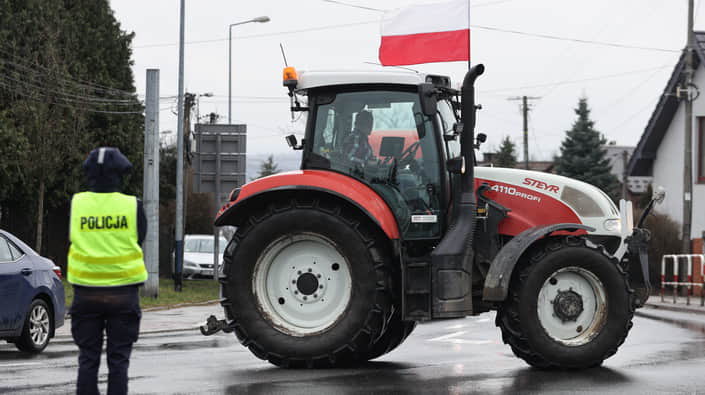Bringing order to the border: why Ukraine and Poland need help from Frontex

The past few months have seen regular disruptions to movement at the Ukrainian-Polish border (and occasionally at borders with Ukraine's other Western neighbours). It’s now clear that none of the existing mechanisms – whether these are part of integrated border management, diplomacy, or technocratic negotiations – are effective.
And the situation with Poland is escalating in terms of both rhetoric and actions.
The recent incident involving spilled grain is a form of direct violence – currently only directed against property, but one that could escalate into violence against people at any moment.
Both the Ukrainian and the Polish economies, as well as the EU as a whole, are suffering significant losses due to the blockade. Ukraine is the hardest hit.
What’s more, the blockade is affecting supplies to the front lines. Despite all the discussions there have been about allowing military goods to pass, many items – from smaller pieces of equipment to drones and vehicles – may enter the border as commercial imports and get stuck there because of the blockade.
The border is not functioning properly; free trade is being unjustifiably hindered; there are high-security risks due to military supplies being held up; and there's a risk of violence escalating at the border. The authorities are unable to control the situation and ensure proper border operations.
All in all, this is what anyone would call an emergency situation.
The concept of an emergency situation exists in the European system of integrated border management, and there are algorithms for the interaction between member states and Frontex, the European Border and Coast Guard Agency. However, the understanding of an emergency situation in this system is fairly narrow, primarily covering humanitarian emergencies, mass uncontrolled migration, and search and rescue operations at sea.
Blockades are a blind spot as far as this system is concerned – it hardly even recognises what’s happening at the Polish-Ukrainian border as a border management issue. It’s time that changed.
In November 2023, during the hauliers’ blockade, Serhii Derkach, Ukraine’s Deputy Minister of Infrastructure, announced that Ukraine had initiated the setting up of an EU Border Monitoring Group to monitor the passage of hazardous freight and humanitarian aid and the conditions in which drivers were waiting in queues at the border.
Judging by the information available, this initiative has had no impact whatsoever.
Now that the situation at the Polish-Ukrainian border is turning into pandemonium, with attempts to halt not only freight but also passenger and rail traffic, this mission is needed more than ever.
Such a mission does not even need to be set up separately. All that has to be done is to apply the mechanism of assistance to member states from Frontex, since its tasks include "assisting Member States in circumstances requiring increased technical and operational assistance at external borders".
Frontex has assisted Finland, for example, in dealing with the challenges posed by a hybrid migration crisis orchestrated by Russia, by deploying additional forces and equipment at the border.
The proposed mission at the Polish border would, of course, differ significantly from Frontex's usual modus operandi, which is typically called upon in migration crises, but it aligns perfectly with the logic of its tasks within the framework of the EU Integrated Border Management Strategy. These include monitoring, information gathering, information exchange, risk analysis, and even assisting member states in facilitating the crossing of external borders.
Moreover, if Frontex were involved in facilitating free trade and free movement of people rather than its traditional role of countering illegal border crossings, this could somewhat mitigate the harsh criticism the agency comes under in Western academic and human rights circles, which is little known in Ukraine but significantly shapes the public discourse surrounding Frontex within the European Union.
And what is also crucial is that unlike many other EU institutions, Frontex is capable of rapid deployment.
If Frontex personnel were deployed near border crossings of all types with a mandate for observation and reporting, or perhaps even for handing out humanitarian aid to waiting drivers and passengers, this would help Polish, European and Ukrainian societies to obtain impartial information about the blockade.
It would also reduce the likelihood of violent conflict and strengthen the position of the Polish government, which is clearly losing control of the situation.
Publications in the Expert Opinion section are not editorial articles and solely reflect the author's point of view.
